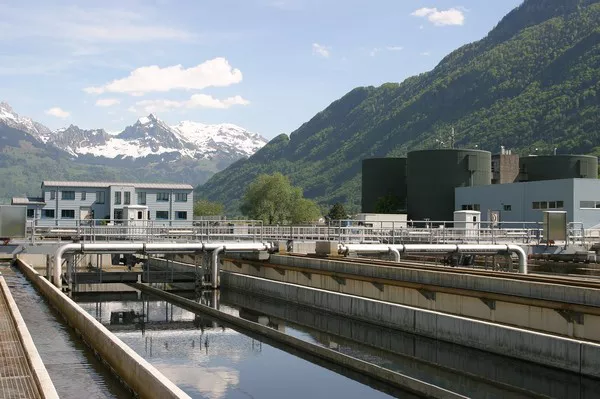In various industrial and commercial applications, the air compressor stands as a silent workhorse, playing a crucial role in powering a multitude of tools and processes. From manufacturing plants to automotive workshops, the functionality of an air compressor is indispensable. This article aims to provide a comprehensive understanding of what an air compressor is, its types, applications, and the pivotal role it plays in diverse sectors.
Definition and Basics
An air compressor is a mechanical device designed to increase the pressure of air by reducing its volume. This is achieved through a dynamic process where the compressor draws in atmospheric air and compresses it to a higher pressure level. The compressed air is then stored in a tank or delivered directly to various tools and applications through a network of pipes.
The basic components of an air compressor include a motor or engine, a compressor pump, and a tank for storing the compressed air. The motor provides the necessary power to drive the compressor pump, which in turn performs the compression of air. The tank serves as a reservoir, ensuring a steady and reliable supply of compressed air.
Types of Air Compressors
Air compressors come in various types, each designed to cater to specific requirements and applications. The two main categories are positive displacement compressors and dynamic compressors.
Positive Displacement Compressors
a. Reciprocating Compressors: This type uses a piston-cylinder mechanism to compress air. As the piston moves, it reduces the volume of the air, leading to compression.
b. Rotary Screw Compressors: These compressors utilize two rotating helical screws to compress air. As the screws rotate, the air is drawn in and compressed between the screws.
c. Rotary Vane Compressors: In this design, a rotor with vanes is eccentrically positioned in a stator. As the rotor turns, the vanes slide in and out, compressing the air.
Dynamic Compressors
a. Centrifugal Compressors: These compressors use a high-speed rotating impeller to accelerate the air, which is then converted into pressure as it passes through a diffuser.
b. Axial Compressors: In axial compressors, the air flows parallel to the axis of rotation, and pressure is increased through a series of rotating and stationary blades.
Applications of Air Compressors
The versatility of air compressors makes them indispensable across a wide range of industries. Some key applications include:
Manufacturing: Air compressors power pneumatic tools such as drills, grinders, and impact wrenches, enhancing efficiency in manufacturing processes.
Construction: In construction sites, air compressors are used to operate pneumatic tools like jackhammers and nail guns, significantly speeding up construction activities.
Automotive: From tire inflation to powering air tools in repair shops, air compressors play a crucial role in the automotive industry.
Healthcare: In medical settings, air compressors are used to supply compressed air for respiratory therapy equipment and other medical devices.
Energy Sector: Air compressors are employed in various processes within the energy sector, including gas transmission and processing.
Factors Influencing Air Compressor Selection
Choosing the right air compressor for a specific application involves considering several factors:
Pressure Requirements: Different tools and processes require varying levels of compressed air pressure. It’s essential to select an air compressor that can meet the specific pressure needs of the application.
Flow Rate: The volume of air delivered by the compressor, measured in cubic feet per minute (CFM), is a crucial factor. It should align with the requirements of the tools or processes being powered.
Duty Cycle: The duty cycle, representing the percentage of time an air compressor can operate within a given period, is vital for applications with continuous or intermittent usage.
Power Source: Air compressors can be powered by electricity, gasoline, diesel, or natural gas. The availability of a suitable power source should align with the operational needs of the user.
Maintenance and Efficiency
Proper maintenance is essential for the longevity and efficient operation of air compressors. Regular checks on filters, oil levels, and belts, as well as routine inspections for leaks, ensure optimal performance. Additionally, following manufacturer guidelines for scheduled maintenance is crucial to prevent breakdowns and minimize downtime.
Efficiency is a key consideration, as it directly impacts operating costs. Choosing energy-efficient models and adopting best practices such as minimizing air leaks contribute to cost savings and environmental sustainability.
Future Trends and Innovations
As technology continues to advance, the air compressor industry is witnessing innovative trends. Smart compressors equipped with sensors and monitoring systems provide real-time data on performance, enabling predictive maintenance and enhancing overall efficiency. Moreover, developments in materials and design are contributing to the production of compact, lightweight, and environmentally friendly air compressors.
Conclusion
In conclusion, air compressors are integral components in numerous industries, powering tools and processes that contribute to increased efficiency and productivity. Understanding the types, applications, and factors influencing selection is essential for users to make informed choices that align with their specific needs. As technology evolves, the future holds promising advancements that will further enhance the capabilities and sustainability of air compressors, solidifying their role as indispensable assets in the industrial landscape.

